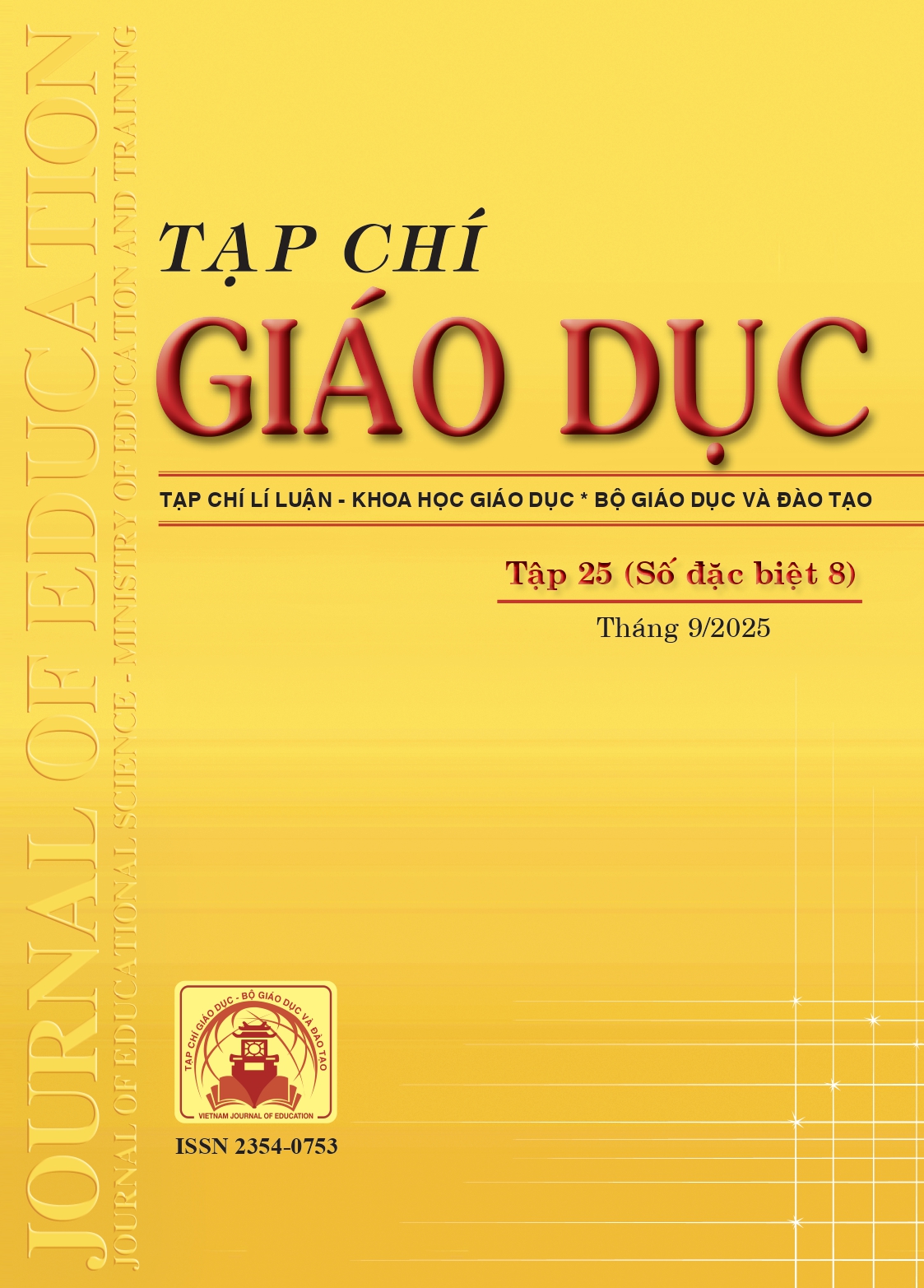Mức độ sẵn sàng chuyển đổi số của sinh viên dân tộc thiểu số tại các trường đại học khu vực miền núi phía Bắc Việt Nam
Tóm tắt
In recent years, Vietnam has prioritized digital transformation in higher education to modernize teaching, expand access, and enhance digital skills. However, ethnic minority students in northern mountainous regions remain at a disadvantage due to persistent economic, infrastructural, and educational gaps. This study investigates the digital readiness of ethnic minority students at some universities in Northern mountainous regions of Vietnam, identifying influencing factors and proposing improvement solutions. Using the mixedmethods design, data were collected from 392 students through a questionnaire and in-depth interviews with 13 ethnic minority students. The findings reveal that ethnic minority students have lower digital readiness levels compared to their Kinh counterparts, particularly in technology access, digital skills, and attitudes toward digital transformation. Economic, social, and educational factors were identified as key determinants influencing digital readiness. The study recommends enhancing access to technological devices, providing digital skills training, and fostering a supportive learning environment to improve the adaptability of ethnic minority students in the context of digital transformation in higher education.
Tài liệu tham khảo
Asian Development Bank (2024). Digital Transformation for Inclusive and Sustainable Development in Asia. https://doi.org/10.56506/HSDC4319
British Council (2022). Skills for Inclusive Digital Participation. British Council.
Bùi Thị Nga, Lê Vũ Toàn, Lưu Đức Long (2020). Giáo dục đại học: Cơ hội và thách thức trong chuyển đổi số. Tạp chí Thông tin & Truyền thông, 5+6, 1-9.
Davis, F. D., & Davis, F. (1989). Perceived usefulness, perceived ease of use, and user acceptance of information technology. MIS Quarterly, 13(3), 319-340.
Hong, S., & Kim, S. (2018). Digital Readiness for Academic Engagement (DRAE) Model. Journal of Educational Technology, 34(2), 45-60.
Huang, R., Liu, D., Kanwar, A., Zhan, T., Yang, J., Zhuang, R., Liu, M., Li, Z., & Adarkwah, M. A. (2024). Global understanding of smart education in the context of digital transformation. Open Praxis, 16(4), 663-676. https://doi.org/10.55982/openpraxis.16.4.761
Kampylis, P., Punie, Y., & Devine, J. (2015). Promoting effective digital-age learning: A European framework for digitally competent educational organizations (DigCompOrg). Publications Office of the European Union.
Kaushik, M., & Agrawal, D. (2021). Developing digital skills among students in rural and remote areas. International Journal of Digital Literacy and Digital Competence, 12(1), 25-40.
McGill, L. (2023). Digital transformation framework for higher education institutions. Jisc. https://www.jisc.ac.uk/guides/framework-for-digital-transformation-in-higher-education
Michelotto, A., & Joia, L. (2024). The Organizational Digital Transformation Readiness (ODTR) Model in Higher Education Institutions. Journal of Digital Transformation, 8(1), 67-83.
Nguyen, T. T., & Nguyen, V. H. (2021). Challenges and opportunities in digital education for ethnic minority students in Northern Vietnam. Journal of Educational Research, 15(2), 125-138.
OECD (2021). 21st-Century Readers: Developing Literacy Skills in a Digital World, PISA, OECD Publishing, Paris, https://doi.org/10.1787/a83d84cb-en
.
Psico-smart.com. (2025). Bridging the digital skills gap in underserved communities. Psico-smart Publications.
Rotar, L. (2022). Factors affecting digital readiness in higher education: Infrastructure, skills, and motivation. Journal of Digital Learning, 10(3), 93-107.
Sánchez-Cruz, J. A., Ramírez, C., & López, M. (2020). Digital literacy and indigenous students: Barriers and enablers in online learning. Journal of Multicultural Education, 14(3), 245-259.
Thủ tướng Chính phủ (2022). Quyết định số 131/QĐ-TTg ngày 25/01/2022 phê duyệt đề án Tăng cường ứng dụng công nghệ thông tin và chuyển đổi số trong giáo dục giai đoạn 2022-2025, tầm nhìn 2030.
Tran, K. N. N. (2016). The adoption of blended e-learning technology in Vietnam using a revision of the Technology Acceptance Model. Journal of Information Technology Education: Research, 15, 253-282. http://www.informingscience.org/Publications/3522
Vuorikari, R., Kluzer, S., & Punie, Y. (2022). DigComp 2.2: The Digital Competence Framework for Citizens—With new examples of knowledge, skills and attitudes. Publications Office of the European Union. https://doi.org/10.2760/115376
Weiner, B. J. (2009). A theory of organizational readiness for change. Implementation Science, 4, 67. https://doi.org/10.1186/1748-5908-4-67
World Bank (2020). Digital Transformation in Vietnam’s Higher Education: Challenges and Strategies. World Bank.
Đã Xuất bản
Cách trích dẫn
Số
Chuyên mục
Giấy phép

Tác phẩm này được cấp phép theo Ghi nhận tác giả của Creative Commons Giấy phép quốc tế 4.0 .












